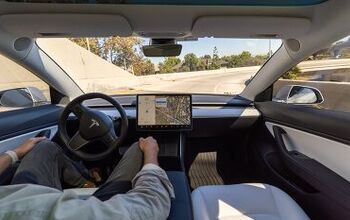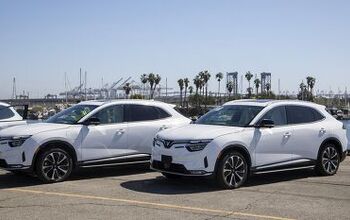New Massachusetts Law Hands Part of Uber Fare to Cab Companies

From the everyone’s a winner! file comes this story. Soon, whenever a Massachusetts resident hails an Uber, the state will hand part of their fare to their direct competition.
Reuters reports that Massachusetts lawmakers are poised to levy a five-cent-per-trip levy on ride-hailing apps like Uber and Lyft — a new corporate welfare initiative that is the first of its kind in the U.S.
Ride-hailing apps like Uber are the nemesis of taxi companies, which operate via a long-standing but inflexible business model. Cities that consider legalizing ride-hailing apps face widespread protests from cabbies, including Toronto, where one cabbie felt like going for a ride on the outside of an Uber sedan.
Often, the go-to plan is to simply regulate the ride-sharing apps out of business. We’re looking at you, Austin, Texas. In Massachusetts, the solution to avoid being seen as a modern, progressive state that shuns new technology and societal trends is to simply tax the new business (so no others suffer). It’s akin to placing a levy on Big Macs to keep the Home of the Whopper™ in business.
Massachusetts governor Charlie Baker signed the levy into law this month, part of a broader package of laws aimed at the ride-hailing. The levy goes beyond just propping up Uber’s competitors. One-quarter of the total levy goes to taxi companies, another quarter goes to the state transportation fund, and half goes to the municipalities.
Naturally, how the state’s portion will be spent hasn’t yet been decided on.
As you might expect, Uber and Lyft drivers aren’t happy about this. Kirill Evdakov, CEO of Boston (and Austin) ride-hailing service Fasten, told Reuters that he doesn’t think operators like himself “should be in the business of subsidizing potential competitors.”
Taxi companies approve of the new laws, though many feel they don’t go far enough. Their default position is that Uber and other such companies operate outside of the law, and should face severe scrutiny from law enforcement and regulators.
The state claims riders won’t see a bump in fees, as the law requires companies to pay the government directly, not through drivers or passengers. Of course, many feel that the cost will surely be passed down to customers. The taxi subsidy part of the fee runs through 2021, after which the 20-cent levy will be split between the state and municipalities until the levy disappears in 2026.
[Image: Jason Tester Guerrilla Futures/ Flickr]

More by Steph Willems
Latest Car Reviews
Read moreLatest Product Reviews
Read moreRecent Comments
- W Conrad I'd gladly get an EV, but I can't even afford anything close to a new car right now. No doubt if EV's get more affordable more people will be buying them. It is a shame so many are stuck in their old ways with ICE vehicles. I realize EV's still have some use cases that don't work, but for many people they would work just fine with a slightly altered mindset.
- Master Baiter There are plenty of affordable EVs--in China where they make all the batteries. Tesla is the only auto maker with a reasonably coherent strategy involving manufacturing their own cells in the United States. Tesla's problem now is I think they've run out of customers willing to put up with their goofy ergonomics to have a nice drive train.
- Cprescott Doesn't any better in red than it did in white. Looks like an even uglier Honduh Civic 2 door with a hideous front end (and that is saying something about a Honduh).
- Kwik_Shift_Pro4X Nice look, but too short.
- EBFlex Considering Ford assured us the fake lightning was profitable at under $40k, I’d imagine these new EVs will start at $20k.


































Comments
Join the conversation
I get tired of taxi companies protesting Uber. The market is speaking in terms of transportation. Maybe if the cab companies provided a better service people would use them. Customers are making the choice but then govt has to step into the mix. I'm pretty sure when I buy a sandwich at Panera I don't have to contribute a nickel to the struggling McDonalds across the street because they provide a substandard service.
How many taxes do we need? Just one more! Uber should deliver this monthly, IN NICKELS!